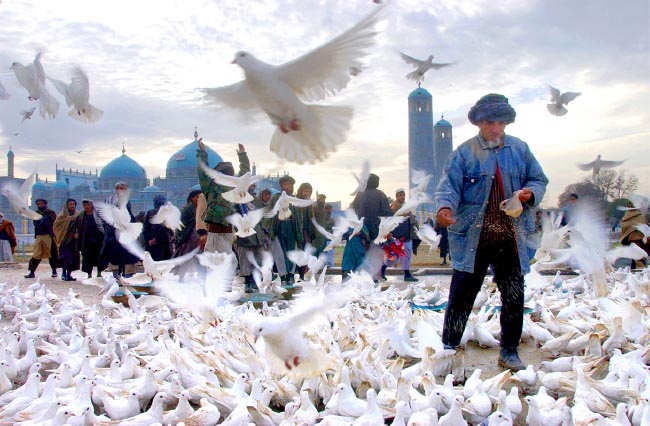Peace is one of the fundamental needs of our society and should be pondered upon so as to facilitate the society with peace and prosperity. Currently, peace has been considered an inevitable national need, since the public reveals strong hatred of war, violence and destruction. However, one might assume that there is a particular social layer of the society which continues violence and engineers a destructive war. It is self-explanatory that those who are involved in war, will bear the brunt of casualties and mourn over the dead bodies of their near and dear ones. The need for peace has been changed into a widespread national desire and the country will have to spend in this way.
There is no doubt that gaining peace will cost as much as the war imposes on a nation. First, a country needs to bolster up fearlessness, bravery and aspiration for peace and tranquility rather than war and violence. It would be far honorable to sacrifice reputation and dignity for peace instead of having them violated in war. In addition, the financial expenditures are to be spent for facilitating peace not for continuing war. In such a case, peace will regain its fundamental status as a strategy and paves the ground for practical solutions.
Needless to say, the need for peace will be changed into a process on the condition that all social institutions shoulder their responsibilities about peace and extend the national demands in this respect. Religious institutions are believed to have great responsibility in paving the ground for peace. They have to strengthen the behavioral, religious and social pillars of peace and make the public mentally ready for negotiation. Similarly, the media, educational institutions, etc. are supposed to keep the collective spirit high and their hopes alive for peace and prosperity. One will conclude that all social institutions have great responsibility for smoothing the path for peace and have to take high and effective step in this respect.
The government’s significant role regarding the issue of peace is undeniable. In addition to peace-making capacities as a social institution, the state has serious obligation in ensuring peace and stability based on the country’s Constitution. It is stated in the Constitution, “The state shall be obligated to create a prosperous and progressive society based on social justice, preservation of human dignity, protection of human rights, realization of democracy, attainment of national unity….” Hence, the state should place the peace process on the top of its agenda for having greater responsibility.
First of all, the state needs to find out the root causes for peace and carry out a comparative study about its intellectual, social, political and economic hotbeds. That is to say, it is the government to find how to undermine the bases of instability and boost the public spirit for peace. A realistic and educational approach towards peace and war and will enable the government to tackle the instability and social chaos, adopt an effective strategy and map out for gaining peace.
After exploring the factors and obstacles for peace, adopting a strategy for peace and making policy for a peaceful and civil society is the second fundamental need. The government is supposed to pursue this need bravely through meticulous, educational and flexible plan. The planning for peace should be in accordance with public traditions and social realities. Furthermore, social, political and economic investments have to be paid serious attention. It is crystal clear that a sustainable peace will not be gained without a strategic plan and clear policy.
The military deal will be the last resort for peace which will be planned with taking into consideration the strategic pillar for peace. It is believed that planning will be the most sensitive period for peace possibility, but the practical step will be highly difficult. This step will cost too much and needs bravery and skill for implementation.
The National Unity Government (NUG) is less likely to have filled the three vacuums, since it has ushered in military deal without a deep study and adopting a certain strategy. The military deal has not borne the desired social and political result yet. The peace agreement with Hezbe-Islami, led by Gulbuddin Hekmatyar, will be called a success, but this still has not had a tangible effect for the country’s stability. Therefore, peace is supposed to be planned based on strategic feasibilities and clear objective.
The government is to fulfill its commitment as it is constitutionally responsibility to build a society void of violence and bloodshed on the basis of democracy. It is hoped that a clear strategy will be adopted to tackle the insecurity effectively and put an end to war and violence.
Home » Opinion » The Need and Possibility for Peace
The Need and Possibility for Peace
| Mohammad Ishaq Arifi

